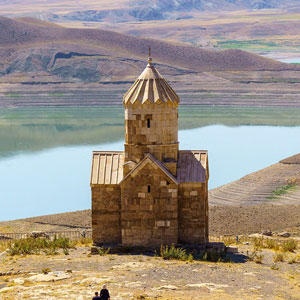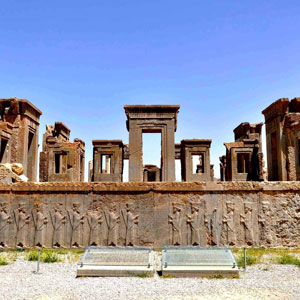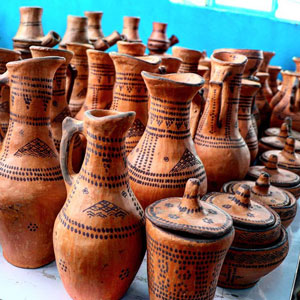 Signin with Google
Signin with Google Signin with Facebook
Signin with Facebook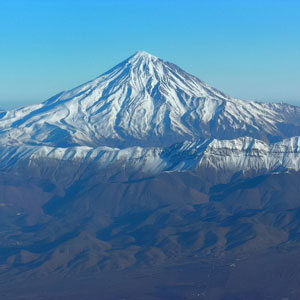 Nature
NatureGandou, Iran's Mugger Crocodile
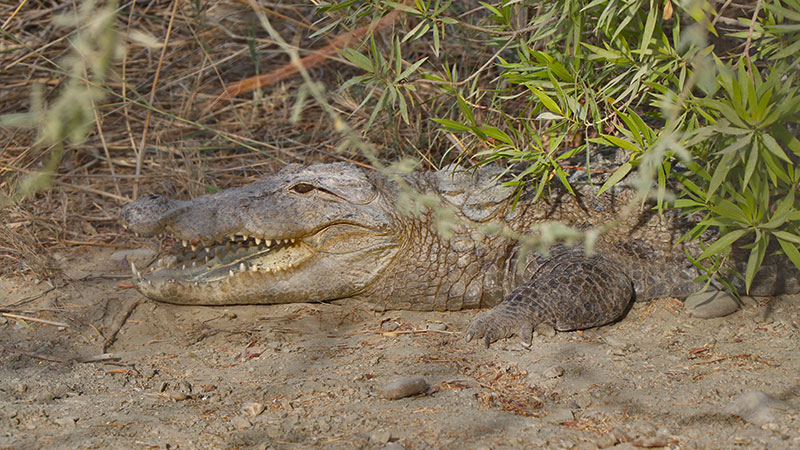
Iran has crocodiles!
In the waters of south-eastern Iran, near Sarbaz river in Sistan and Baluchistan province, some kilometres from the border with Pakistan lives the only crocodile spices found in Iran. According to an Indian myth, this ancient beast is a descendant of a water monster named “mugger”. Though the world knows it with the name mugger more often, Baluchi fellow-citizens call it with a fitting name of gandou, because its belly-walk makes its belly touch the ground since Gandou means “that which crawls on its belly” in Baluchi language.

Gandou, the ancient beast witnessed the history of civilizations coming and going through the less than five meters deep ponds surrounded by dense vegetation in this region, which once have been the capital of culture and civilization in the Southeast of Iran. The sociable reptile is old and reputable enough to be entered the literature of the country.
Marsh crocodile brings blessing
The life of Baluchistan’s beast depends on water. Since Baluch people respect the water and everything depends on it, they believe this broad-snout crocodile is a sign of blessing, and they are the honorary caretaker of it.
One of the faithful supporters of gandou in the Baluchistan region is a 66-year-old farmer in Bahu Kalat village. Malek Dinar Shajareh conserves a batch of marsh crocodiles near his house in a pond that he poured with the water transformed from his farmlands. He believes that a day will come which people no longer suffer from the drought and famine due to these limited surviving Gandous.
The realm of the mugger
The mugger crocodile is native to freshwater from south-eastern Iran to the Indian subcontinent. The broadest-snout crocodile among living crocodilians inhabits freshwater lakes, rivers with slow-moving, shallow water bodies. It has shown good adaptability to the habitats made by humans. In Baluchistan, locals dig large ditches called hootak which collects rainwater and gandous have resided in them. There is a population of some 400 muggers spotted near Chabahar, on the Iranian Makran coast as the deputy environment chief has reported. Since the marsh crocodile is extinct in Bhutan and Myanmar, it has been listed as a vulnerable species on the red list of IUCN since 1982.
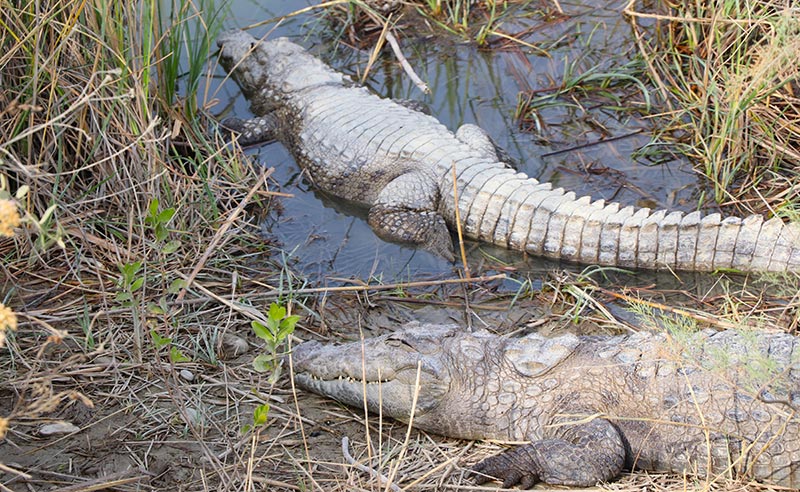
In the habitats within the Iranian territory, mugger doesn’t have any natural predator to challenge it with life and food. As a result, it establishes a “sit and wait” tactic to hunt rather than consuming energy to go for find prey. It waits for the prey to get close to the water surface, grabs it at the snout and pulls it underwater to drown it. When the prey is dead, then Gandou starts eating it.
The marsh crocodile’s diet mostly consists of fish, reptiles, birds and mammals often as large as deer. Young crocodiles feed on insects.
Male or female batch? temperature is what matters
Muggers are very social crocodiles and do not settle in separate groups. However, during mating season territorial behaviours increase and sometimes males fight with each other for getting hot girls. Female crocodiles show their readiness by lifting their tail and head in the air. Mature crocodiles copulate in the water and a couple of months later, females dig in the sand and lay the eggs. Egg-laying occurs during the dry season annually.
But the exciting part is determining the sex of hatchlings that temperature can yield. Temperatures above 35.5 degrees Celsius give male, bellow 31.5 degrees Celsius will produce a merely female batch. Finally, when baby muggers start hatching eggs, the mother carries each in her mouth to soak in the water. Crocodiles protect their eggs and new-born very carefully.
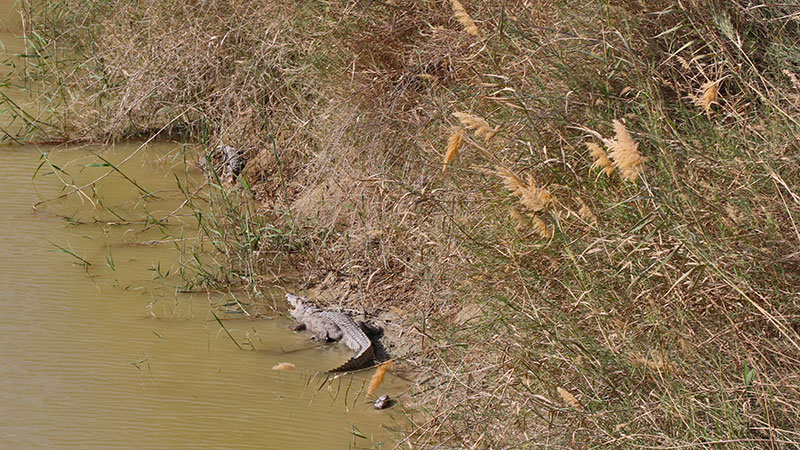
Mugger crocodile, Iran's tourist attraction
Mugger crocodiles opposite to the Nile or Saltwater crocodiles don’t attack humans to kill as prey. Baluch people have been living peacefully in neighbouring marsh crocodiles for centuries with only a small quantity of clashes. On the contrary, it was humankind's threat dwindling the crocodile’s habitats that caused them to migrate in search of water and food.
Today the strict regulations on the illegal trade of crocodile goods resulted in the rise of the mugger population in Iran as a captive breeding centre has been established in this regard in Bahu Kalat village of Sistan and Baluchistan province. The village is a tourist attraction that people visit its protected area called “Gandou” which serves the only species of the crocodile in Iran.

